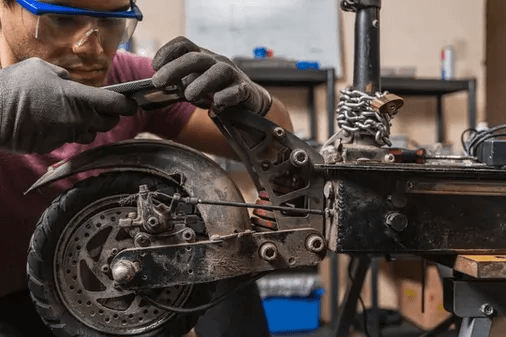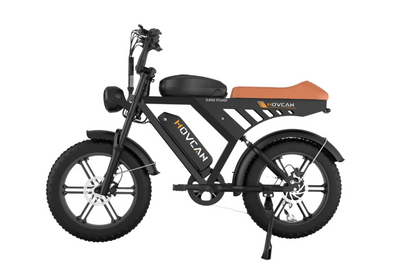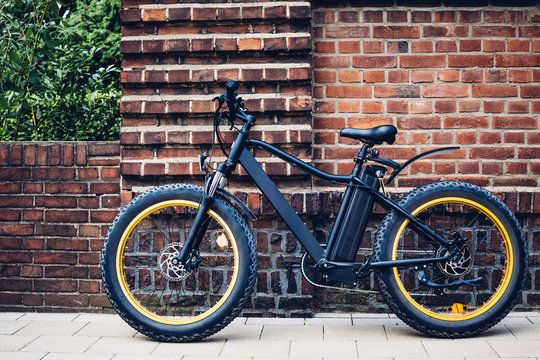As electric motorcycles gain popularity, a frequently asked question is: "Can you drive an electric motorcycle without a license?" This guide answers that crucial question, shedding light on licensing requirements, the legalities surrounding electric motorcycles, and key factors to consider when choosing an e-motorcycle. For both beginners and seasoned riders, understanding whether you need a license is essential before hitting the road.
What is an Electric Motorcycle?
Before delving into licensing, it’s vital to understand what qualifies as an electric motorcycle. Unlike traditional motorcycles that rely on gasoline engines, electric motorcycles operate using rechargeable batteries. These eco-friendly bikes come in different classes, from low-speed electric scooters to high-performance models that rival their gas-powered counterparts. But, do all electric motorcycles require the same license?
Do You Need a License for an Electric Motorcycle?
The short answer: Yes, in most cases, you do need a license for an electric motorcycle. However, the requirements vary depending on the power output, speed capacity, and location. Understanding these distinctions will help you navigate local laws more effectively. Let’s break down how electric motorcycle licenses work across different regions and motorcycle types.
Factors That Determine If You Need a License for Electric Motorcycles
Not all electric motorcycles are created equal, and different factors influence whether or not you need a license. The key variables include the speed of the vehicle, motor capacity, and jurisdiction.
Speed and Power Limitations
In many countries, the speed of your electric motorcycle plays a pivotal role in licensing. Low-speed electric scooters (typically capped at 30-50 km/h or 20-30 mph) may not require a license, while faster models that reach speeds above 50 km/h (30 mph) are often classified similarly to gas-powered motorcycles and thus, require a license.
Motor Capacity
Electric motorcycles are also classified by their motor capacity, measured in watts. Models with a motor output above a certain threshold—usually 750 watts—often fall under the motorcycle category and require a proper motorcycle license.
Regional Laws
Licensing laws for electric motorcycles vary significantly across countries and states. Some regions mandate that all electric motorcycles, regardless of speed or motor capacity, require a valid driver’s license, while others provide exemptions for low-speed vehicles. Always check local laws before purchasing or riding an electric motorcycle.
Which License Do You Need for an Electric Motorcycle?
When it comes to the type of license required for electric motorcycles, different jurisdictions have specific rules. Here’s a quick breakdown of the most common types of licenses associated with electric motorcycles.
Moped License
If your electric motorcycle is classified as a moped—typically limited to low-speed models under 50cc—you may only need a moped or scooter license. This type of license is easier to obtain than a full motorcycle license and may have fewer restrictions in some areas.
Motorcycle License
For higher-speed models, you’ll likely need a full motorcycle license. This license allows you to legally operate faster, more powerful electric motorcycles. Obtaining a motorcycle license often involves passing both a written and practical riding test.
Regular Driver’s License
In some cases, a standard car driver’s license will suffice for riding an electric motorcycle, particularly low-powered models. However, this varies by location, and riders are encouraged to check their local Department of Motor Vehicles (DMV) or equivalent authority for specific rules.
Can You Ride an Electric Motorcycle Without a License?
For those wondering, “Can I ride an electric motorcycle without a license?” the answer is generally no, unless you are riding a very low-speed, low-powered electric bike. The majority of electric motorcycles—especially those that can exceed 30 mph—require a valid motorcycle or moped license. However, some jurisdictions allow the use of electric bicycles or e-bikes without a license, provided they meet certain speed and power restrictions.
Consequences of Riding an Electric Motorcycle Without a License
What happens if you get caught driving an electric motorcycle without a license? The consequences can be severe, ranging from hefty fines to legal penalties, depending on your location.
Legal Penalties
In many jurisdictions, riding without the proper license can result in criminal charges or penalties. This could include points on your driving record, suspension of your driving privileges, or even imprisonment for repeat offenses.
Insurance Issues
Operating an electric motorcycle without a license can also complicate insurance coverage. If you are involved in an accident, insurance companies may refuse to cover damages if you were riding without the necessary license, leading to expensive out-of-pocket costs.
Fines and Fees
Riding an electric motorcycle without the required license could result in fines ranging from hundreds to thousands of dollars, depending on local laws. Repeated violations could lead to increased fines and even more severe consequences.
How to Get a License for an Electric Motorcycle
If you’ve determined that you need a license for your electric motorcycle, the next step is to understand the licensing process. Here are the typical steps involved:
Step 1: Study for the Written Test
Most licensing authorities require riders to pass a written test on road rules and motorcycle safety. You can often access study guides and practice tests through your local DMV website.
Step 2: Take a Motorcycle Safety Course
Many jurisdictions recommend or require a motorcycle safety course as part of the licensing process. These courses teach you the basics of riding, safety protocols, and how to handle different traffic situations on an electric motorcycle.
Step 3: Pass the Riding Test
In addition to the written test, many places require a practical riding test. During this test, you’ll demonstrate your ability to safely operate an electric motorcycle under various conditions.
Step 4: Obtain Your License
Once you pass the written and riding tests, you’ll receive your motorcycle license. Be sure to renew your license as required to stay compliant with the law.
Exemptions and Special Cases
Some places offer exemptions for specific groups of people or types of electric motorcycles. For example, some states offer licenses to teenagers under a provisional system, allowing them to ride low-powered electric motorcycles. Others may allow seniors or people with disabilities to use electric scooters without a full motorcycle license.
Conclusion: Stay Safe, Stay Legal, and Enjoy the Ride
In summary, whether you need a license to drive an electric motorcycle depends largely on your location, the speed, and the power of the motorcycle. While low-speed electric bikes or scooters may not require a license in some areas, more powerful models generally do. It’s always crucial to familiarize yourself with local regulations to avoid fines, penalties, and insurance complications. Riding with the proper license not only ensures your safety but also guarantees that you’re complying with the law.
If you’re considering purchasing an electric motorcycle, MOVCAN offers a fantastic range of options to suit every rider’s needs. From beginner-friendly scooters that may require only minimal licensing to high-performance electric motorcycles designed for more experienced riders, MOVCAN has the perfect bike for you. Plus, with MOVCAN’s commitment to quality and innovation, you can trust that you’re investing in a reliable, eco-friendly ride that complies with local regulations. Ready to make the switch to electric? Explore MOVCAN’s electric motorcycle collection today and ride with confidence!





Share:
Are eBikes Street Legal? A Complete Guide to Understanding Regulations
Understanding Florida E-Bike Laws: Everything You Need to Know